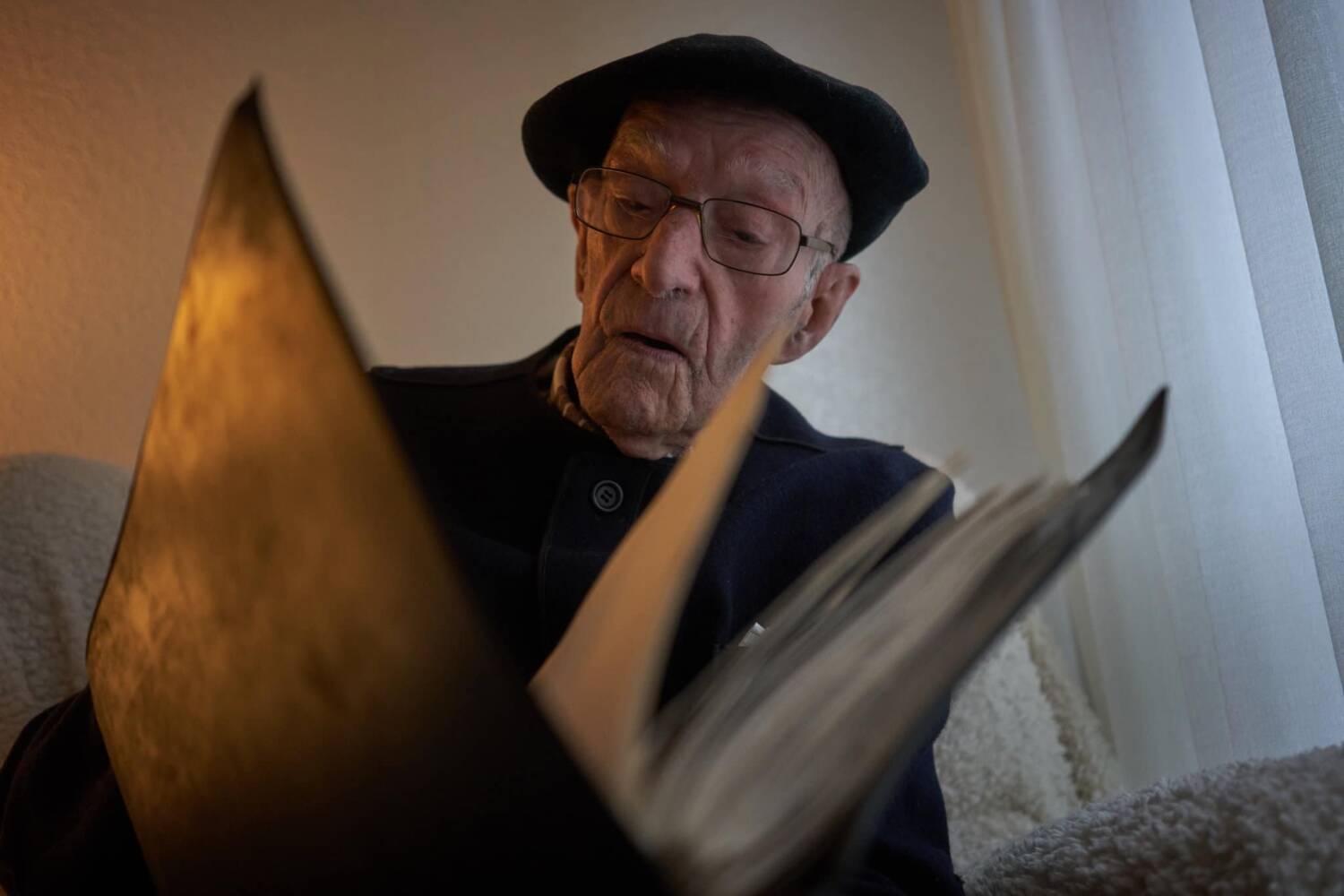This article was translated by John R. Bopp
An article was published yesterday in The New York Times that’s got us excited. It was an interview with an extaordinary patriot, gudari José Moreno, who turned 100 a few weeks ago, while always maintaining his commitment to his Country, Democracy, and Freedom.
In the article, penned by Raphael Minder, an old friend to the blog, our admired gudari gives tells us a bit about himself and his life.
He was a gudari, a soldier in the Army of the Basque Country (Euzkadi) when that term was officially given out by the Government of Euzkadi
Now, his story and his ideas have been published in the most prestigious newspaper in the world. It’s a small way to pay him back for those years when he couldn’t speak, as he was living under a deadly, criminal dictatorship.
He is part of the living memory of our nation, and ever since he, as almost a child, made the decision to defend Freedom, Democracy, and hias Country, he’s been an example for us all.
He speaks for tens of thousands of Basque patriots who didn’t survive the insurgents’ war, jails, and concentration camps. He speaks for the tens of thousands of Basques who had to flee into exile, or who died in those dark years of the dictatorship run by the criminal called Franco.
But there were two things we wished we’d seen in the article:
Firstly, that José Moreno fought in the Basque Army, under the orders of Lehendakari Aguirre. It’s true that he was fighting insurgents in defense of Freedom, but he was also fighting for our country, under the orders of the first Basque President. José Moreno is, above all, a Basque patriot.
Secondly, we wish that our little piece of the map that had been highlighted had been correctly named. What was highlighted in the article isn’t the “Basque Country”, it’s the “Autonomous Community of the Basque Country”. What the “Basque Country” is is so much more. But we can’t complain too much, when even our own media and politicians don’t use the terms correctly.
In any case, José Moreno is one of the few people who can still connect us with that generation of heroes he belongs to, and having him appear in The New York Times just as he is, a man who dedicated his life to Freedom, is a clear example of “poetic justice”. At least in some cases, goodness and commitment to freedom are recognized, as this clearly shows.
As we said in the article talking about his 100th birthday, from the blog, we’d like to convey our admiration and our commitment to not leave the path that he and his compatriots so clearly marked.
Zorionak, eta Eskerrik asko!!!
Agur eta Ohore Euzko Gudariari
Health and a Basque Republic!!!
New York Times – 25/1/2019 – USA
This Old Basque Soldier Expected to Die 80 Years Ago
When José Moreno, a Basque soldier, was captured in 1937 during the Spanish Civil War, he was sentenced to death by one of the commanders in the army of Gen. Francisco Franco, the eventual winner of the conflict. For reasons he says he never understood, he was spared that fate. He celebrated his 100th birthday in November.
(Sigue)
Google Translator. The New York Times doesn’t accept Google’s automatic translation; you have to copy and paste the article into the translator
Last Updated on Dec 20, 2020 by About Basque Country





